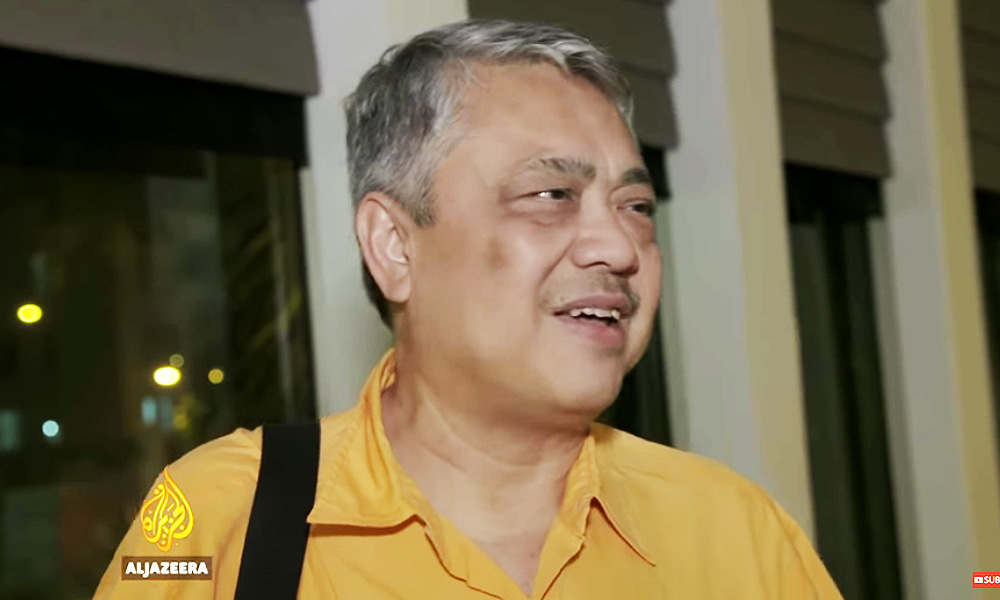Malaysian businessman Faidzan Hassan has denied his involvement in an alleged money-laundering scheme in the Maldives involving up to US$1.5 billion, as exposed in an Al-Jazeera investigative report.
“I deny this allegation,” Faidzan told Malaysiakini.
In a documentary titled 'Al-Jazeera Investigates: Stealing Paradise' released today, it detailed an alleged scheme by a former Maldives vice-president and several "secretive businessmen" to launder US$1.5 billion in hard currency through an island investment plan.
"A (former) vice-president worked on the project with three of the president's closest aides, including his nephew.
"They laid out an island investment plan to a group of secretive businessmen... But it was a ruse to make the plot appear legitimate," the report said.
According to the documentary, among those supposedly involved were Faidzan, a Singaporean, an Indonesian mining and energy investor, and a British-educated Indonesian who runs an iron ore mine.
"Here, he's pictured with the Malaysian architect of the deal. He spun the web of front companies through which the money would be laundered," the documentary said.
Al-Jazeera included a video clip in which their reporter approached Faidzan in a 'luxury mall' in Kuala Lumpur and questioned him if he had knowledge about "cash flying into the Maldives" under a company.
Malaysiakini has also contacted the company for its response on this matter.
 Faidzan, who is the principal partner of the company, seemed bewildered by the line of questioning.
Faidzan, who is the principal partner of the company, seemed bewildered by the line of questioning.
The reporter then asked him about the three other men purportedly involved in the scheme, and he conceded that he has met them before.
When the reporter asked him directly whether he helps people to launder money, he told the reporter off.
"My god, how can you even say that? Say it to my face? How can you even say that?" he said.
Rephrasing his question, the reporter asked again, "Sir, do you offer a service in which I can bring large amounts of cash to you and you can clean it for me?"
"No way. Absolutely not," he said.
However, Al-Jazeera said that earlier, one of their undercover reporters had met with Faidzan under the guise of being an investment executive with a number of very wealthy clients.
They had secretly filmed that meeting, where the undercover reporter asked whether he could help clients who wanted to move substantial sums in cash.
"We can do that," he had said.
However, he explained that he did not deal with arms and drugs.
"Much as they say money is dirty, to me, I don't deal with arms and drugs. That's it. So long as they don't sell arms, my conscience is clear," he said in the video clip.
Seven layers to conceal identity
The secretly filmed meeting also showed him explaining that he has layered some of these 'structures' up to seven layers to conceal the identity of those involved in the transactions.
"Even at the end of it, the identity of the owner is actually a foundation in my name, and that goes nowhere.
"That foundation, they come back to me and say yeah? It's actually a Panama foundation," he added.
He also told the undercover reporter that the easier currency to move would be euros as US dollars "can be quite tricky".
"The Fed (Federal Reserve). You know, the currency comes out and to clear it with the Fed, it's a headache," he said.
He also told the undercover reporter that the money would go through a central bank in Asia, with which he has made arrangements with.
When he was confronted with this information by the reporter at the mall, he said that his comments were misunderstood and taken out of context.
In the documentary, it said that all those who were involved denied any wrongdoing in the plan to transport cash. They also said no money was moved.
Their names have been withheld pending their response to the allegations.

